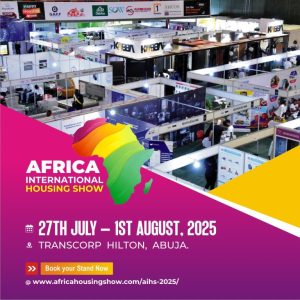Alhaji Aliko Dangote, President of the Dangote Group, has announced plans to bring down the price of Liquefied Petroleum Gas (LPG), popularly known as cooking gas, in a bid to make it more affordable for the average Nigerian. However, the move has stirred protest from key players in the industry, who fear it could lead to a monopolisation of the sector.
Speaking recently at the Dangote Refinery in Lekki during a visit by both local and international guests, Dangote revealed that his refinery currently produces up to 22,000 tonnes of LPG per day. He described the current cost of cooking gas as unnecessarily high and out of reach for many Nigerians who still rely on firewood for cooking.
“We’re currently producing about 2,000 tonnes of LPG daily,” Dangote said while addressing participants from Lagos Business School’s CGEO Africa programme. “LPG is still expensive, but we are working to reduce the price. If existing distributors refuse to align, we will begin direct sales to consumers.”

He warned that if middlemen and distributors continue to resist a price cut, the Dangote Group may bypass them and supply LPG directly to the public, in hopes of encouraging the switch from firewood and kerosene to cleaner gas alternatives.
The company has previously announced plans to distribute petroleum products directly to marketers nationwide, including petrol, diesel, and aviation fuel. This is expected to begin in August, using 4,000 Compressed Natural Gas-powered buses to support the logistics.
Currently, the price of cooking gas in Nigeria ranges between ₦1,000 and ₦1,300 per kilogram, depending on location. Dangote insists the market must become more accessible to everyday Nigerians.
However, this declaration has triggered pushback from operators in the LPG value chain, many of whom argue that the billionaire’s approach is anti-competitive and could disrupt the progress already made by private investors in the sector.
Godwin Okoduwa, a former Chairman of the LPG and Natural Gas Downstream Group of the Lagos Chamber of Commerce and Industry, criticised the approach as monopolistic. According to him, Nigeria’s LPG market has seen steady growth over the years, thanks to collaborative efforts between government bodies, the Nigeria LNG (NLNG), and private stakeholders.
“The market grew from just 70,000 metric tonnes in 2007 to over 1.3 million tonnes by 2022 through joint efforts. It wasn’t done by one person,” Okoduwa noted. “Monopoly does not foster growth. What we need is cooperation that supports everyone the investors, the consumers, and the government.”
He argued that the LPG sector in Nigeria still has huge untapped potential and advised Dangote to focus on developing infrastructure in under-served areas, particularly the Northeast, where LPG consumption is lowest.
“If his interest is truly to help the people, he should take that investment to the Northeast and expand infrastructure there,” he said. “We’ll thank him for that.”
Echoing similar sentiments, Bassey Essien, Executive Secretary and CEO of the Nigerian Association of Liquefied Petroleum Gas Marketers, cast doubt on Dangote’s ability to single-handedly reduce prices or sell directly to end users. He questioned the realism behind such claims.
“It sounds good, but let’s be practical,” Essien said. “Have they been able to sell petrol directly to consumers at a lower rate? That hasn’t happened.”
The concerns raised highlight an underlying tension between private sector players and large-scale industrial investors entering an already developing market. While the Dangote Group promises cheaper alternatives and broader access, existing players are urging caution, advocating for a more inclusive and collaborative approach.




